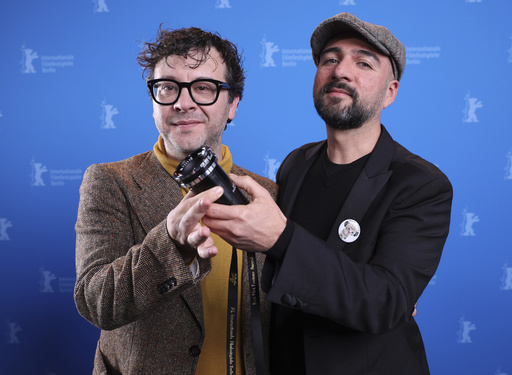
BERLIN — The 75th Berlin International Film Festival concluded with a remarkable celebration of cinema as a Norwegian film centered on themes of love, longing, and discovery took home the prestigious Golden Bear award.
Directed by Dag Johan Haugerud, “Dreams (Sex Love)” triumphed at the festival, with the jury, led by American filmmaker Todd Haynes, praising it as a profound exploration of love that resonates with its sharp intellect. Haynes emphasized its emotional depth, stating that it “cuts you to the quick.”
The narrative follows a teenage girl portrayed by Ella Øverbyer, who becomes enamored with her female French instructor. The story delves into the reactions of the girl’s mother and grandmother as they stumble upon her personal writings. This film marks the final installment of a trilogy that Haugerud has developed over the past year; the films “Sex” and “Love” were screened at the Berlin and Venice Film Festivals, respectively.
The Silver Bear for best film went to Brazilian director Gabriel Mascaro’s thought-provoking dystopian feature “The Blue Trail,” while the third-place Jury Prize was awarded to “The Message,” a rural narrative directed by Argentina’s Ivan Fund.
In addition, Huo Meng received the best director accolade for “Living the Land,” a film set against the backdrop of rapidly evolving 1990s China. The festival also honored Rose Byrne as the best performer for her poignant role as an overwhelmed mother in Mary Bronstein’s film “If I Had Legs, I’d Kick You.” The supporting performer award was claimed by Andrew Scott for his portrayal of composer Richard Rodgers in Richard Linklater’s “Blue Moon.”
The festival’s grand finale coincided with the eve of Germany’s parliamentary elections, a time when the electoral campaign has largely focused on issues surrounding migration and economic challenges.
This national election, held unusually early, follows the collapse of Chancellor Olaf Scholz’s governing coalition due to unresolved tensions regarding strategies to rejuvenate the economy. Migration control has taken center stage in the campaign, alongside the rising influence of the far-right Alternative for Germany party, which is poised to achieve its strongest national electoral performance to date.

